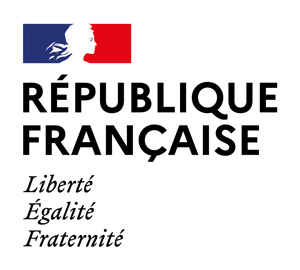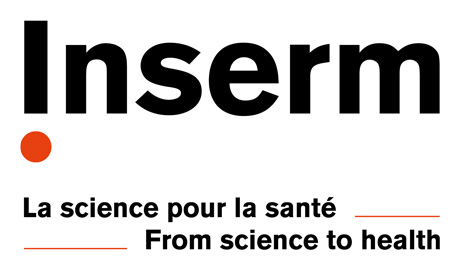





CEA/NeuroSpin, INSERM Cognitive Neuroimaging Unit, Cognition & Brain Dynamics
Keywords: cognition, neuroscience, M/EEG, virtual reality, time perception, AI, machine learning
Applications are invited for a full-time post-doctoral cognitive neuroscientist in the European consortium Experience. The candidate will have significant experience using neuroimaging (EEG, MEG), a solid research record in cognitive neurosciences, psychology and/or related fields, and knowledgeable interest in exploring (spatio)temporal cognition using virtual reality. The selected postdoctoral fellow will work at Neurospin and will be responsible for the development and the transfer of knowledge within the consortium. S/he will contribute to the validation of novel experimental protocols, their implementation with combined virtual reality and neuroimaging, and state-of-the art analyses approaches. The postdoctoral fellow will benefit from an interdisciplinary collaboration, and will be scientifically central to the advancement of the project. The postdoctoral fellow will be involved in the organizational and managerial aspects of the project, including the supervision of students, the organization of meetings, and project reports.
Requirements for the candidates: hold a PhD in cognitive neurosciences, neurosciences, psychology, and/or related fields;
solid record of internationally peer-reviewed scientific work;
expertise or strong interest in temporal and/or spatial cognition;
solid understanding of statistics;
prior experience with EEG or MEG methods preferred;
signal processing and programming skills (python);
autonomy and capacity to lead one’s project independently as well as collaborate with others;
be an overall good lab citizen;
fluid mastery of both oral and written English
Expected Starting date: 2022, ASAP / negotiable
Salary: commensurate with experience; position will be funded for up to 2.5 years.
Application package CV (incl. a list of publications)
A reprint of what you consider to be your best work
A letter of intent with a statement of research interests
Two letters of recommendation (or contacts from which those could be obtained)
Please specify in the email subject line as “EXPERIENCE - POST-DOC” and send your application package to Virginie.van.Wassenhove@gmail.com
Project:
Spatiotemporal Interferences in Prospective and Retrospective Experiences of Time
The human spatial navigation system encompasses hippocampal brain structures and provides a flexible internal mapping of a subject's spatial position with respect to its environmental landmarks. These structures are involved in spatial navigation and episodic memory. Very little is known regarding how time is perceived during navigation and episodic encoding: are temporal experiences (e.g. order, duration, speed) compressed in memory like any other informational content? Is time lost and reconstructed a posteriori? Does this reconstruction also support our experience of time in real-time?
We will bring temporal distortions to VR, explore spatio-temporal interferences and see how they affect the mapping of time. Projects will use human psychophysics, VR, physiological recordings (EKG, GSR) and time-resolved neuroimaging techniques (MEG, EEG). State-of-the-art statistical techniques will be used to assess oscillatory coupling in brain activity as well as decoding and machine learning techniques.
European Commission Horizon 2020 - Research and Innovation Framework Programme
Extended-Personal Reality: augmented recording and transmission of virtual senses through artificial-intelligence
EXPERIENCE involves eight academic and industrial partners with complementary expertise in artificial intelligence, neuroscience, psychiatry, neuroimaging, MEG/EEG/physiological recording techniques, and virtual-reality. The postdoctoral position will be fully dedicated to the Scientific foundation for the Extended-Personal Reality, a work package lead by the CEA (Virginie van Wassenhove) in collaboration with Univ. of Pisa (Gaetano Valenza, Mateo Bianchi), Padova (Claudio Gentilli), Roma Tor Vergata (Nicola Toschi) and others...
Social media has transformed the way we communicate through text, images, and videos. Despite recent technological avenues, virtual reality (VR) has not been incorporated in social platforms, hence limiting the comprehensive sharing of an experience. This project makes real the complex interplay between multisensory perception, emotional responses, past experiences, and perspective of the future also by disentangling the mental representation of self in space and time. The new Extended-Personal Reality technological and scientific paradigms will move Europe to the future generation of extended social interactions by allowing the public at large to i) create their own VR environments as they do photos and videos without the need for technical skills, ii) create virtual simulations eliciting unique psychological, cognitive, neurophysiological, and behavioural responses, iii) automatically generate VR environments from neurophysiological data, iv) easily manipulate VR environments to communicate and elicit specific emotions, v) manipulate perceived reality to effectively treat psychiatric disorders. EXPERIENCE embeds advanced artificial intelligence routines merging information from a person’s Extended-Personal Reality to inform manipulation tools including neuromodulation, multisensory biofeedback (audio, video, haptics), and subjective perception of time-space. EXPERIENCE will produce extremely realistic reproductions of the user's past and may re-administer it by modulating the associated emotional states on demand. Within a large number of research and innovation avenues, EXPERIENCE will prioritise novel diagnosis and treatment of affective disorders commonly associated with altered multisensory perception like depression, anxiety, and eating disorders. A plethora of innovative technological paradigms including gaming, e-learning, and neuroeconomics will be in the commercial exploitations, including the opening of a new market for actually selling EXPERIENCEs.
Partners: Università di Pisa (UNIPI) (COORDINATOR)
Centre Suisse d ?Electronique et de microtechnique (CSEM)
Università di Roma “Tor Vergata” (UNITOV)
Comissariat à l ?Energie Atomique et Aux Energies Alternatives (CEA) - France
University of Padua (UNIPD)
Karolinkska Institutet (KI)
Quatechnion (QU)